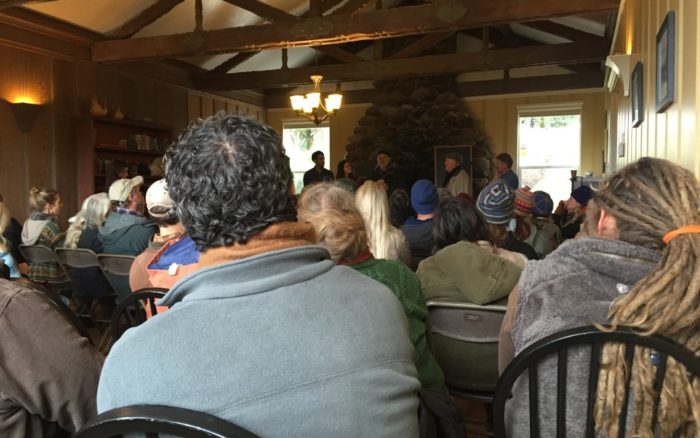Farming and Associative Economics
For the first time, I understand something about “associative economics”. The term has hung in my mind like an acronym that you don’t remember the words to and don’t quite understand. Since it is often associated with the English magazine Resurgence and the Schumacher Institute, I figured it had to do with a spiritual approach to money, but it was not until BDANC’s (Biodynamic Association of Northern California) Winter Quarter meeting in Ukiah this last Saturday, that the term has inserted itself as pole star in the night sky of my psyche. Although the particulars can get mindboggling, the simplicity of the concept warms my heart.
John Bloom, author and Vice President of Organizational Culture of RSF Social Finance, spoke to a packed room on the threefold nature of economics, applying spiritual principles of Rudolf Steiner to the flow of products, and particularly around farming. He explained how our system is set up to subsidize industrial farming and certainly not the small or mid-sized farm.
I was reminded of a keynote address at an All Things Organic tradeshow Donald and I attended years ago in Austin, Texas. Robert Kennedy, Jr. rolled up his sleeves as he spoke to us, most of us small farmers and businesses related to food. “Thank you for farming,” he said to us. “The hype is that the small farm is not an economically viable unit. This could not be further from the truth,” and he proceeded to lay out how the waste of industrial farming— and this includes the manure, the damage to the soil and our waters— all of this is laid on the commons, not the industrial farmers. If you take in the costs laid on society, and if these are figured into the cost of industrial farming products, the small farm is more than competitive.
But Saturday’s lecture went further. Bloom talked about culture and spirituality, in other words, associative economics. There is the producer, the distributor, and the customer. Generally prices are set to what the market will bear, producing more, cheaper goods and pricing them as high as customers will pay. This results in a lot of excess use of resources and has dire consequences on the earth.
In associative economics, the producer, distributor and the customer are in conversation. The producer, in this case, the farmer, lays out what he or she needs to raise the food and make a living— not a killing, but a living. The same is true of the distributor. The customer then sees the true cost of his or her food and either agrees to pay that price or not buy the item. If it doesn’t sell, of course, the farmer and distributor have to rethink what they are doing. But all in all, this is a system that is built to supply food and need, not build wealth for a very few.
The room was packed with young and old farmers and those in-between. It’s a new paradigm that also takes the earth into consideration and is of the new order. Take only what we need. Consider who else is also here. We are all a part of a large web, and for any one of us to take more, affects everyone.
